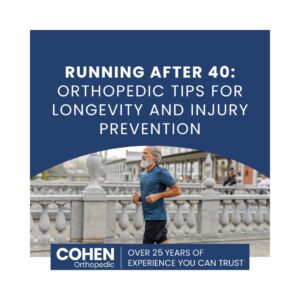Is Arthritis Reversible? Understanding the Possibilities

Arthritis is one of the most common chronic conditions affecting millions of people around the world. Whether it’s the pain, stiffness, or swelling that comes with it, arthritis can have a profound impact on quality of life. But is there any hope for reversing the condition? Can we truly cure arthritis, or at least halt its progression?
While current medical understanding holds that arthritis is not fully reversible in the traditional sense, advancements in treatments, lifestyle changes, and early interventions offer significant hope for managing and even alleviating its symptoms. Let’s dive into the realities of arthritis and explore whether there is a path to improvement or even “reversal.”
Understanding Arthritis: More Than Just Joint Pain
Arthritis is not just a single disease, but a broad term used to describe over 100 different conditions that affect the joints. The most common types include:
- Osteoarthritis (OA): A degenerative joint disease where the cartilage that cushions joints wears down over time.
- Rheumatoid Arthritis (RA): An autoimmune disorder where the body’s immune system attacks its own joints, leading to inflammation.
- Psoriatic Arthritis: An inflammatory arthritis associated with the skin condition psoriasis.
- Gout: A form of arthritis caused by the buildup of uric acid crystals in the joints.
Each of these conditions has different causes and mechanisms, which affects how they are treated. But one thing they all share is that they tend to involve damage to the joints, making “reversal” a complex topic.
Why Arthritis is Not Fully Reversible
In the case of Osteoarthritis (OA), for example, the joint cartilage gradually deteriorates over time, and while there are treatments available to reduce pain, improve joint function, and slow progression, the cartilage does not regenerate. Once it’s gone, it doesn’t grow back. Similarly, rheumatoid arthritis (RA) can cause permanent joint damage if not treated early, as the body’s immune system attacks healthy tissues, causing irreversible harm. However, this doesn’t mean that arthritis is without hope or that people living with the condition are doomed to a lifetime of pain and limited mobility. In fact, many people with arthritis live active, fulfilling lives with proper management.
Can Arthritis Be “Reversed”? A Closer Look at Treatment Options
While we may not be able to fully reverse arthritis in the sense of erasing all damage, symptom management and disease progression prevention are key components of modern arthritis care. With the right treatment plan, many people experience significant relief and improved function.
1. Early Diagnosis and Disease Modification
For conditions like rheumatoid arthritis and psoriatic arthritis, early diagnosis and the use of disease-modifying antirheumatic drugs (DMARDs) can be game changers. These drugs don’t just manage symptoms; they can slow or even halt the progression of the disease, reducing the potential for permanent joint damage. In some cases, if treatment is started early enough, people with RA and psoriatic arthritis can achieve remission, where they experience no active inflammation or disease activity.
2. Joint Protection and Lifestyle Changes
For Osteoarthritis (OA), the damage to cartilage is irreversible, but treatments can help slow the condition’s progression. A combination of:
- Physical therapy
- Strengthening exercises
- Weight management
- Bracing or joint supports
can help alleviate pressure on affected joints, reduce pain, and improve mobility. Regular low-impact activities like swimming, cycling, or walking can help maintain joint flexibility without exacerbating symptoms. In fact, staying active is one of the best things you can do for arthritis.
3. Advances in Biologic Medications
Biologic drugs, such as TNF inhibitors, IL-17 inhibitors, and JAK inhibitors, are increasingly used to treat autoimmune-related forms of arthritis like rheumatoid arthritis and psoriatic arthritis. These medications target specific parts of the immune system that are responsible for the inflammatory response, reducing the damage they cause to joints. In some cases, these biologics may make it seem as though arthritis has been “reversed” because inflammation is reduced, joint function improves, and symptoms subside.
4. Surgical Interventions
In severe cases, surgery may be necessary to repair or replace a damaged joint. Joint replacement surgery (such as hip or knee replacement) can dramatically improve quality of life by alleviating pain and restoring function. While surgery can’t “reverse” arthritis, it can certainly give patients a new lease on life, allowing them to return to normal activities.
Can We Prevent Arthritis or Delay Its Onset?
While you can’t always prevent arthritis, there are strategies that may help delay its onset or reduce its severity. These include:
- Maintaining a healthy weight: Extra weight puts additional stress on weight-bearing joints, especially the knees, hips, and lower back.
- Eating an anti-inflammatory diet: Foods rich in antioxidants (like fruits and vegetables) and omega-3 fatty acids (from fish or flaxseeds) can help reduce inflammation.
- Regular exercise: This keeps joints flexible, strengthens muscles around joints, and reduces the risk of developing osteoarthritis.
The Future of Arthritis Treatment
As our understanding of arthritis evolves, so does the potential for future treatments. Researchers are exploring new ways to regenerate cartilage, repair joint tissues, and better target the immune system to reduce inflammation. For example, stem cell therapies and gene therapies are being tested in clinical trials and may offer new hope for those with arthritis in the future.
Conclusion: A Life Beyond Arthritis
While it’s important to recognize that arthritis cannot be fully reversed in the traditional sense, there are many treatment options available that can help manage symptoms and prevent further damage. Early intervention, disease-modifying treatments, lifestyle adjustments, and even surgery can dramatically improve a person’s quality of life and potentially slow the progression of the disease.
Rather than thinking of arthritis as a condition that cannot be changed, consider it as something that can be managed and controlled. With the right strategies and medical support, many people with arthritis lead full, active lives and enjoy long-term symptom relief.
So, while we may not be able to reverse arthritis completely, we certainly can transform the experience of living with it through the right treatments and lifestyle choices. And that is a victory.










